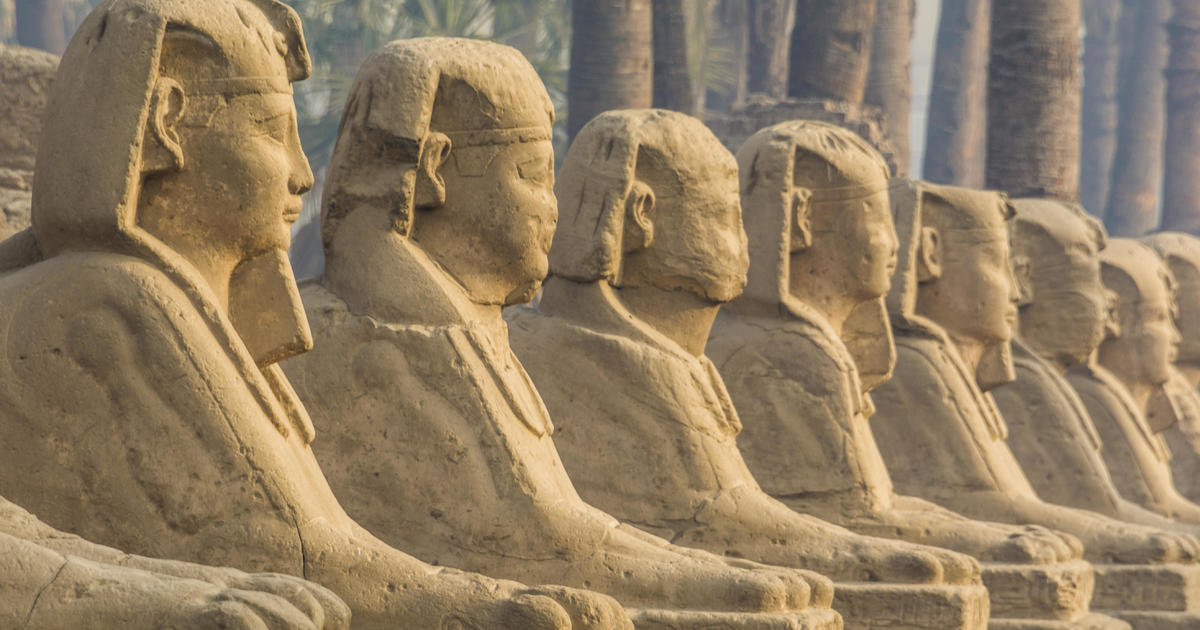
Egypt to reopen the ancient "Avenue of Sphinxes" centuries after it hosted parades for the gods
CBSN
Cairo — As Americans looked forward to the time-honored tradition of the Thanksgiving Day Parade, almost 6,000 miles away, Egypt was hoping to revive a tradition of its own, which likely hasn't been seen in a couple thousand years. The Egyptian Ministry of Tourism and Antiquities was to hold a grand ceremony on Thursday evening to mark the reopening of the ancient Avenue of Sphinxes in the city of Luxor.
The sacred road, once named "The Path of God," connects the Temples of Karnak in the north with Luxor in the south. Paved in sandstone blocks, the 1.7-mile-long road is lined on both sides with more than 1,050 statues of sphinxes and rams. They've spent centuries buried under the desert sands, but slowly, over many years, Egypt's renowned archaeologists are bringing them back into the light of day.
So far 309 statues have been excavated in good condition, but that number may increase as excavation work continues, Dr. Mustafa Al-Saghir, director general of the Karnak monuments, told CBS News.

Scientists say they've discovered the world's biggest coral, so huge it was mistaken for a shipwreck
Scientists say they have found the world's largest coral near the Pacific's Solomon Islands, announcing Thursday a major discovery "pulsing with life and color." The coral is so immense that researchers sailing the crystal waters of the Solomon archipelago initially thought they'd stumbled across a hulking shipwreck.










